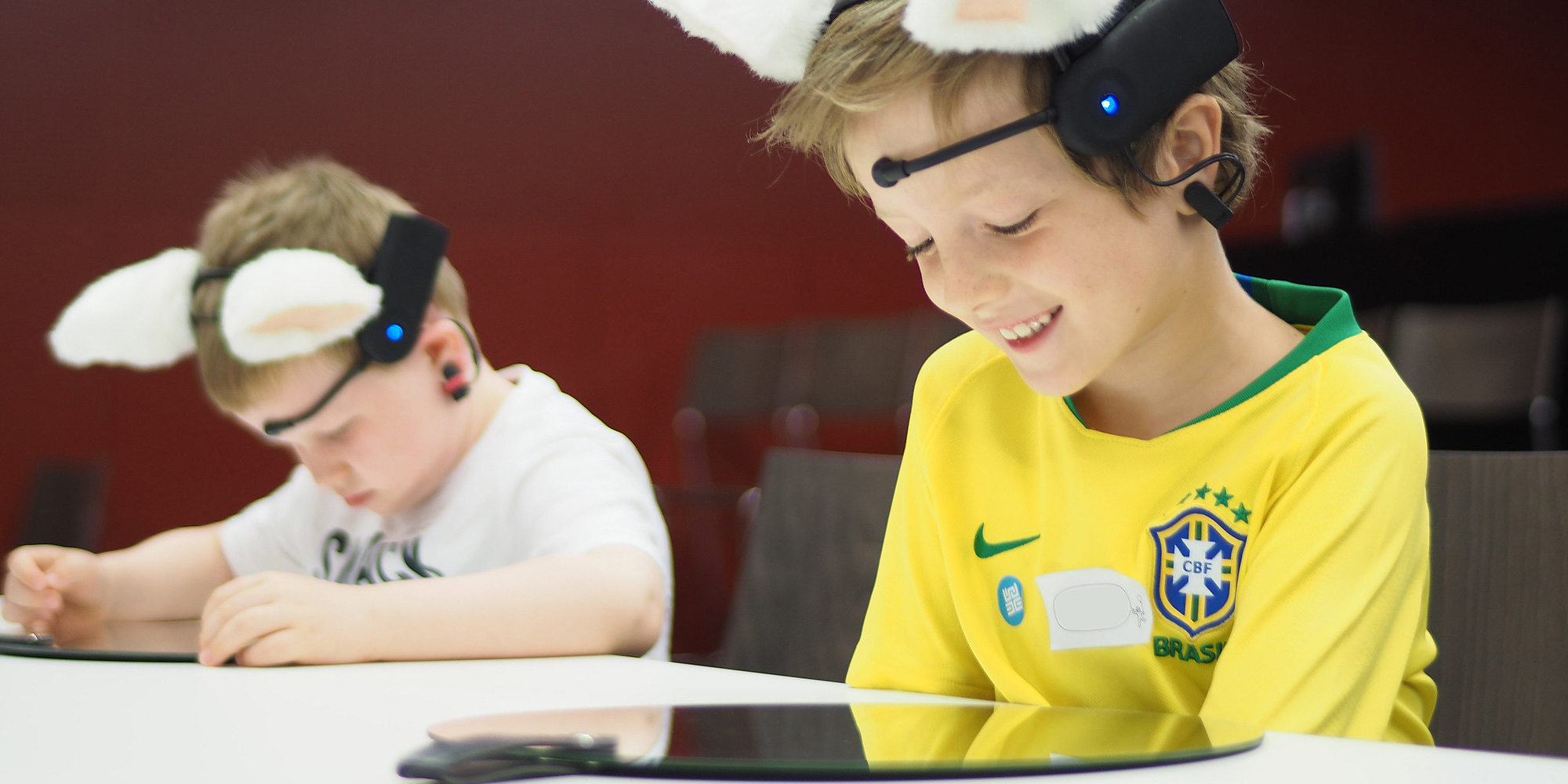press release as PDF
website Ars Electronica Home Delivery
Ars Electronica Blog
(Linz, 23.7.2020) Building and programming robots, training self-propelled cars, discovering hidden worlds with a microscope or delving into the subject of artificial intelligence: The Ars Electronica Center’s summer vacation program invites children aged 6 and up to explore and experiment while guaranteeing plenty of fun and variety. The workshops, which can be attended by up to 10 people, must be booked by phone under 0732.7272.0 or by e-mail to center@ars.electronica.art. In addition to the vacation program and the recently resumed guided tours, Ars Electronica Home Delivery will continue to offer the opportunity to learn more about the exciting thematic areas and programs offered by Ars Electronica via live stream. “The Ars Electronica Center’s Children’s Workshops make the world a more comprehensible and are designed to awaken playful curiosity through exciting insights. For the Ars Electronica Center’s young fans, the vacation program shows how we’re shaping the world of today and tomorrow ourselves,” says Ars Electronica City Councilor Doris Lang-Mayerhofer, Chairman of the Ars Electronica Advisory Board.
In the event that a visitor subsequently tests positive and chains of infection can be traced, contact data is recorded at the museum cashier’s desk and stored locally for a period of one month, after which the data is deleted. During the visit to the museum, mouth-and-nose coverings must be worn and a minimum distance of 1 metre to other visitors and museum staff must be maintained.
The holiday programme at a glance:
Circus Robotikus (for children from 8 to 12 years)
Wed 29 July 2020 / 09:30 – 12:30
The Ars Electronica Center’s Machine Learning Studio not only allows to build, program and control robots but also to train self-propelled model cars. Clear the ring for the Robotikus Circus. In this workshop, participants not only learn how machine learning works, but also that the entire knowledge of the machines was contributed by us humans.
Machine 9 x smart (for children from 6 to 10 years)
Thu 30 July 2020 / 09:30 – 12:00
Can machines actually “think” or “learn”? Of course they can. This is called artificial intelligence. In this workshop the young participants will learn about different examples and see how well or badly machines perform compared to human intelligence.
A lot going on in the moss (for children from 6 to 10 years)
Wed 12 August 2020 / 09:30 – 12:00
Mosses play an important role in the ecosystem in many ways: When it rains, they store several times their own weight in water, can grow on barren ground or bare rocks and are the habitat for countless small animals such as mites, springtails, water bears, spiders, gnat larvae, beetles and many others. Many of them cannot be seen with the naked eye, but under the microscope the moss suddenly comes to life.
From hardware to soft tissue (for children from 11 years)
Thu 13. August 2020 / 09:30 – 12:00
This workshop is about the examination of so-called soft robotics, robotic components that consist of soft, adaptable materials instead of solid parts. The fields of application of these soft robotics include prostheses or body extensions. Participants are invited to let their imagination play, invent body extensions and build them.
Super brain (for children from 6 to 10 years)
Wed 19 August 2020 / 09:30 – 12:00
It weighs around 1.2 kilograms, is electrically charged, constantly collects information and gives all kinds of commands: the brain. At Super Brain everything revolves around the structure and functions of the human control center.
AUTOnom (for children aged 11 and over)
Thu 20 August 2020 / 09:30 – 12:30
Self-propelled cars can manoeuvre from A to B without human control. However, they are confronted with complex situations time and again. To cope with them, autonomous machines need artificial intelligence to help them learn. The AUTOnom workshop provides insight into the most diverse control mechanisms of robotic devices and also teaches how computers can see and machines can learn.
Photo:
Im Moos viel los / Fotocredit: Ars Electronica – Robert Bauernhansl / Printversion / Fotosammlung Ars Electronica Home Delivery auf Flickr
Photo:
Zirkus Robotikus / Fotocredit: Ars Electronica – Robert Bauernhansl / Printversion / Fotosammlung Ars Electronica Home Delivery auf Flickr
Photo:
Von Hardware bis Weichteil / Fotocredit: Ars Electronica – Martin Hieslmair / Printversion / Fotosammlung Ars Electronica Home Delivery auf Flickr
Photo:
Superhirn und Denkerstirn / Fotocredit: Ars Electronica – Martin Hieslmair / Printversion / Fotosammlung Ars Electronica Home Delivery auf Flickr
